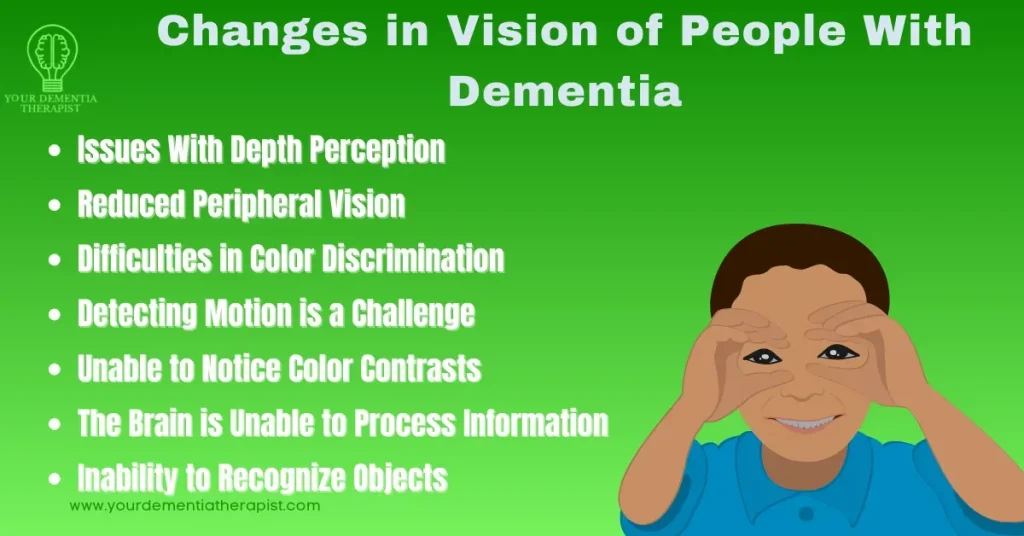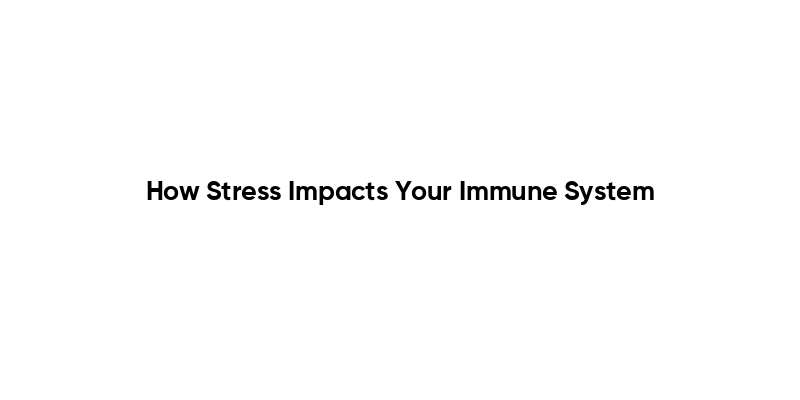Blurry vision and dementia are two interconnected health concerns that researchers are increasingly investigating. Recent studies from New Zealand reveal a concerning link between retinal thinning—a condition that can distort vision—and an elevated risk of developing early-onset dementia. Individuals experiencing blurry vision or transient visuals, such as spots or flashes, may be more prone to cognitive decline, with increased risk noted in those as young as 40. This alarming association emphasizes the importance of eye health and dementia as a crucial area of study, as poor retinal health may indicate broader circulation problems, including those related to dementia risk factors. By understanding these connections, we can advocate for proactive measures in eye care to potentially mitigate the effects of dementia.
The relationship between impaired eyesight and cognitive deterioration has garnered attention from experts examining early stages of memory-related disorders. Conditions like distorted vision and diminished eye function often hint at underlying circulatory issues that may compromise brain health. Notably, numerous individuals may find themselves confronting early symptoms of memory impairment with advancing age, specifically those in their forties or fifties. Understanding the nuances of eye health and its relevance to cognitive function is crucial as we work to identify individuals at higher risk for developing memory-related illnesses. As researchers delve deeper into this intricate connection, awareness and preventative strategies become increasingly vital.
The Link Between Blurry Vision and Dementia Risk
Blurry vision has been increasingly recognized as a potential early warning sign of cognitive decline and dementia. Researchers have discovered that individuals experiencing distorted vision—such as seeing spots or flashes of light—could be at a heightened risk for developing early-onset dementia. This correlation is particularly pronounced in individuals with retinal thinning, a condition affecting the light-sensitive tissue in the eye. When this tissue deteriorates, it can lead to significant vision changes that may reflect underlying neurological issues, indicating that the brain may not be receiving adequate visual input, which is crucial for cognitive functions.
Moreover, the relationship between eye health and dementia extends beyond merely recognizing blurry vision. Conditions that lead to retinal thinning can also be coupled with other vascular issues observed in the eye, such as narrowed arteries. These symptoms are considered indicators of poor blood circulation, not just in the eyes but throughout the body. As researchers from the University of Otago pointed out, such vascular changes may signal broader health problems that could increase the risk of developing dementia as well as other serious conditions like heart attacks.
Understanding Retinal Thinning and Cognitive Decline
Retinal thinning is an important area of study, especially as it relates to dementia risk factors. This condition can lead to serious visual disturbances, including the perception of flashes, spots, or altered color vision. According to findings from the Dunedin Health Study, individuals exhibiting signs of retinal thinning at a younger age—like those in their 40s or 50s—demonstrated a significantly greater likelihood of cognitive decline by the age of 45. This highlights the importance of monitoring eye health as part of proactive dementia risk management.
The implications of these findings also suggest that regular eye examinations can be integral to early detection of signs of dementia. By integrating cognitive assessments with retinal imaging, healthcare providers can better forecast an individual’s risk of developing memory-related conditions. As preventative medicine evolves, understanding the association between retinal health and brain health may lead to innovative approaches in identifying individuals who may benefit from early interventions, potentially slowing the progression of cognitive decline.
Risk Factors for Early-Onset Dementia
Early-onset dementia presents unique challenges, particularly because many individuals are diagnosed in their 40s and 50s, a time when they are typically still engaged in demanding personal and professional lives. Various dementia risk factors, including genetic predisposition, lifestyle choices, and vascular health, contribute to this condition. Recent studies emphasize that retinal health should also be considered a significant risk factor due to its association with cognitive decline. The evidence that retinal issues can indicate inadequate blood flow to the brain further solidifies the connection between eye health and the risk of dementia.
Incorporating a broader understanding of these risk factors is essential for developing comprehensive prevention strategies. For instance, maintaining eye health through regular eye exams, addressing blood pressure issues, and promoting cardiovascular health may ultimately contribute to lowering the risk of developing early-onset dementia. By creating heightened awareness regarding these interconnected health aspects, individuals can take proactive steps to safeguard their cognitive health as they age.
The Importance of Early Diagnosis in Dementia
Early diagnosis of dementia is crucial in managing the condition, as identifying the onset of cognitive decline can lead to tailored therapeutic strategies that may alleviate symptoms and improve quality of life. Research has emphasized the importance of spotting potential early indicators, such as retinal thinning and other eye health issues. With advancements in imaging technology, health professionals are now able to correlate eye examinations with cognitive assessments, thereby providing a multifaceted approach to early diagnosis.
These early detection methods are vital since they may allow individuals and families to prepare for the future and seek appropriate interventions sooner. As emphasized by Dr. Ashleigh Barrett-Young, early intervention can slow the progression of dementia symptoms and may improve overall outcomes. Therefore, recognizing the link between eye health and dementia risk is not only relevant for academic research but also essential for effective clinical practice.
Visual Changes as Cognitive Decline Indicators
The perception of visual disturbances, such as seeing spots or flashes, can often be dismissed as a minor complaint. However, emerging research suggests that these visual changes may act as important indicators of cognitive decline. Individuals experiencing such symptoms should be encouraged to seek medical evaluation, particularly considering the associated risks of retinal thinning. These visual changes could be among the first signs of deteriorating cognitive functions and must be taken seriously.
Understanding that cognitive decline can manifest through changes in vision broadens the scope for preventive healthcare. Professionals may consider integrating routine ocular assessments into standard cognitive health evaluations. Such an approach ensures that clinicians are not only addressing immediate vision concerns but are also considering the potential implications for long-term brain health and cognitive function.
Comprehensive Eye Exams: A Tool for Dementia Risk Assessment
Comprehensive eye exams can serve as a valuable tool for detecting potential dementia risks early on. These assessments go beyond simply prescribing corrective lenses; they can reveal critical information about an individual’s overall health. Conditions such as retinal thinning and other blood vessel irregularities observed during eye examinations may correlate with not only eye health but also cognitive decline and dementia risk factors. Thus, regular eye check-ups can be integral to a holistic approach to healthcare that includes monitoring cognitive health.
The implications of this approach suggest that individuals should prioritize regular eye examinations, especially as they age or if they experience visual changes. By doing so, they might catch early signs of dementia that could otherwise go unnoticed until later stages. As research continues to evolve, integrating eye health assessments into broader health routines may prove crucial in combating the growing incidence of dementia.
Navigating Treatment Options for Cognitive Decline
As research sheds light on the connection between eye health and cognitive decline, it becomes essential to explore effective treatment options for those diagnosed with early-onset dementia. Understanding the early signs of cognitive issues allows for timely interventions that can slow progression and enhance quality of life. Currently, treatment options vary, with some focusing on medications to manage symptoms while others emphasize lifestyle changes like diet and exercise, which have been shown to positively impact cognitive health.
Furthermore, ongoing studies are investigating potential therapies that could specifically address retinal issues as part of dementia management. Enhanced awareness of the relationship between retinal conditions and cognitive decline paves the way for potential new treatment avenues. By monitoring and treating eye health as part of a comprehensive dementia care plan, healthcare providers can better support individuals on their journey, ultimately improving their outcomes.
The Interconnectedness of Eye and Brain Health
The interconnectedness of eye health and brain health is increasingly being recognized in medical research. As studies demonstrate that retinal thinning and other eye conditions can be indicative of dementia risk factors, it is clear that taking a holistic view of health is paramount. Just as cardiovascular health directly affects brain function, ocular health plays a crucial role in maintaining cognitive abilities. Recognizing this connection provides a more comprehensive framework for understanding and addressing cognitive decline.
Consequently, healthcare practitioners are urged to consider a multidisciplinary approach when assessing risks for dementia. By combining insights from ophthalmology and neurology, professionals can develop a more thorough understanding of an individual’s health status. This cross-disciplinary perspective not only improves diagnostics but empowers patients with knowledge about the importance of maintaining optimal eye health to reduce their risk of cognitive decline.
Lifestyle Modifications to Support Eye and Brain Health
Lifestyle modifications can significantly influence both eye health and brain health, thus potentially reducing the risk of dementia. Incorporating a balanced diet rich in antioxidants may enhance retinal health while also supporting cognitive function. Foods such as leafy greens, fish high in omega-3 fatty acids, and berries have all been linked to better eye and brain health. In addition to diet, engaging in regular physical activity has been shown to promote healthy circulation, further benefiting both the eyes and the brain.
Moreover, managing systemic health conditions like hypertension and diabetes is crucial in mitigating risks associated with retinal thinning and cognitive decline. By adopting healthy lifestyle habits, individuals can strengthen their eye health while simultaneously promoting brain health. These proactive steps encourage individuals to take charge of their overall well-being, potentially curbing the effects of aging on both vision and cognition.
Frequently Asked Questions
How does blurry vision relate to dementia risk factors?
Blurry vision can be a significant indicator of dementia risk factors. Research indicates that retinal thinning, which causes distorted vision, can precede cognitive decline. Additionally, changes in the eye’s blood vessels, often revealed through blurry vision, can suggest inadequate blood flow to both the eyes and the brain, heightening the risk of developing dementia.
What is the connection between retinal thinning and early-onset dementia?
Retinal thinning has been associated with a higher likelihood of early-onset dementia. Studies show that individuals with abnormally thin retina tissue may experience cognitive decline earlier, often in their 40s or 50s, thereby increasing the risk of diagnoses such as dementia in later years.
Can eye health and dementia be linked through symptoms like seeing spots?
Yes, eye health and dementia can be closely linked, especially through symptoms like seeing spots. This condition, often resulting from retinal thinning or compromised blood vessels in the eye, may signal inadequate blood circulation to the brain, significantly elevating the risk of dementia.
What are common symptoms of cognitive decline related to blurry vision and dementia?
Common symptoms of cognitive decline associated with blurry vision and dementia include distorted vision, perception of spots or lines, changes in color perception, and an overall diminishing ability to see clearly. These symptoms, particularly when coupled with retinal thinning, can indicate potential cognitive decline.
How can comprehensive eye examinations help identify dementia risk?
Comprehensive eye examinations can help identify individuals at risk of dementia by detecting early signs of retinal thinning and vascular issues in the eyes. These examinations can act as a precursor to cognitive assessments, allowing for early interventions that may improve outcomes in dementia care.
Is there a preventive measure for cognitive decline linked to blurry vision?
Preventive measures for cognitive decline related to blurry vision include regular eye health checks and maintaining good cardiovascular health. Addressing issues like retinal thinning through early diagnosis can contribute to better management and slower progression of dementia.
What role do narrowed arteries and enlarged veins in the eye play in dementia risk?
Narrowed arteries and enlarged veins in the eye suggest poor blood circulation, which can impact the brain’s health and increase dementia risk. These eye conditions may lead to symptoms like blurry vision and discomfort, indicating the need for medical evaluation to assess overall cognitive health.
| Key Points | Details |
|---|---|
| Blurry vision and spots | Indicate high risk for early-onset dementia. |
| Retinal thinning | Abnormal thinning of light-sensitive tissue at the back of the eye that distorts vision. |
| Narrowed arteries and enlarged veins | Heightened risk for dementia; can cause pressure, pain, or vision loss. |
| Poor blood flow | Linked to inadequate blood circulation to the eye and brain, contributing to dementia. |
| Comprehensive eye examinations | Can identify individuals at risk for dementia, allowing for early diagnosis. |
| Study background | Data from the Dunedin Multidisciplinary Study evaluated health info from 900 New Zealanders over 45 years. |
| Cognitive decline signs | Found in those with retinal issues by age 45, indicating potential dementia risk. |
| Imaging as a method | Low-cost approach to assess dementia risk but not a definitive diagnosis. |
Summary
Blurry vision and dementia are closely linked, as recent studies indicate that individuals who experience blurry vision may face a heightened risk of developing early-onset dementia. Research shows that retinal thinning and poor eye health are significant indicators for dementia, particularly in middle-aged adults. Early detection through comprehensive eye examinations can lead to better outcomes for individuals at risk, highlighting the importance of eye health in relation to cognitive function.



